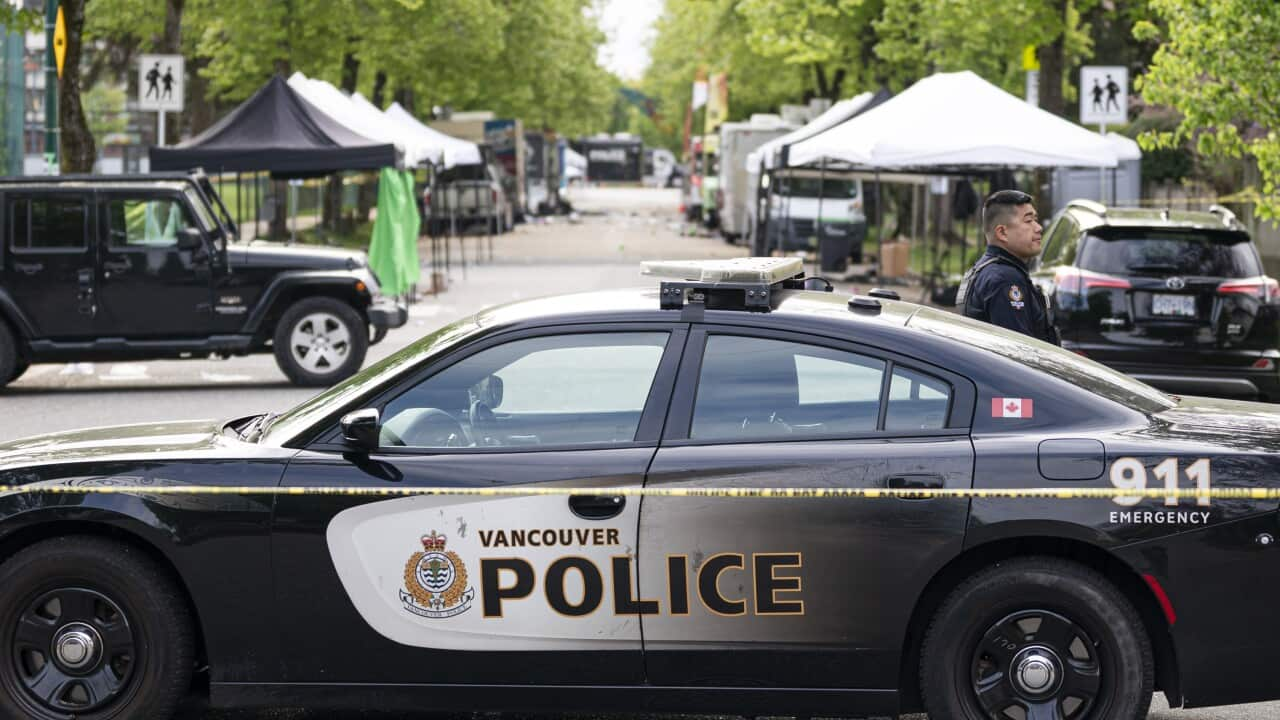TRANSCRIPT
Samuel Hockey is 29 years old and has experienced treatment-resistant depression.
He compares living with the condition to having a flu that lasts for months.
"You feel lethargic. Your body feels fatigued and actually sort of aches. You might lose weight because you're not eating. You feel headachey, you feel overall sluggish and you just can't move from where you are."
Around a third of people diagnosed with depression continue to experience symptoms despite trying multiple medications.
Samuel says he felt incredibly disappointed after years of looking for different treatments.
"Trialling different medications and different sort of therapies and treatments, nothing was really sticking and nothing -- it might improve slightly but then it would plateau or it would slide back and for me personally you just felt incredibly disheartened."
However, a new drug is bringing hope and from Thursday, it will be made will be made more affordable for up to 30,000 Australians through the Pharmaceutical Benefits Scheme.
The medication is Spravato, known chemically as esketamine and it's a chemical cousin of ketamine, which is used as a powerful anaesthetic as well as an illicit recreational drug.
Samuel has been one of a small number of patients who have been using the medication under a special access scheme and currently takes the drug once a fortnight.
He says it has been life-changing.
"For me it knocks out half a day but I sort of wouldn't even see it as knocking out half a day, it's sort of a half a day of investment in the next 14 days of wellness and being able to show up for work on time, complete tasks, interact socially, get out and experience the sun, you know all those tiny daily tasks that you often take for granted when things are going smoothly."
The listing of the drug is the first new government-backed initiative to treat depression in decades.
It will reduce the cost of Spravato from around $800 for a single dose to $31.60 or $7.70 for pensioners and concession card holders.
Minister for Health and Aged Care Mark Butler says the listing would make the novel drug more affordable and improve quality of life for thousands of Australians.
Professor Ian Hickie, co-director of Health and Policy at the University of Sydney's Brain and Mind Centre, says it's a positive step for many people living with depression, which can have broad and serious impacts on a person's life.
"Severe depression interferes with a person's capacity to live their life. Whether that's in education, whether that's in training, whether that's in employment. So, the productivity costs associated with depression, the productivity losses, are very significant. Additionally the impact on people's relationships is high. And of course what we also see are complications -- drug and alcohol abuse, other sets of problems medically and then of course we have the risk of suicide and self harm. So, we lose lives prematurely through physical health complications and through suicide, accident and injury."
Professor Hickie says there have been few pharmaceutical innovations for depression in recent years but Spravoto works very differently to other antidepressants.
"Largely, in fact over the last 60 years, most antidepressants have focused on one of the common monoamines: serotonin, noradrenaline, dopamine. This has a different chemical target: glutamate in the brain, so it's different and it's the first drug to be supported by the PBS that is fundamentally different from all of those other compounds, which have focused on the traditional monoamines."
While other antidepressants may take weeks or months to work, Spravato is fast-acting.
Many leading psychiatrists and researchers have been advocating for the government subsidy for esketamine for several years.
Professor Colleen Loo from the Black Dog Institute says there has been mounting evidence for ketamine's treatment of severe depression for around two decades.
"One of the early studies coming out of the US, so they showed that even people who had trialled four or more medications and for some people, even electroconvulsive therapy, which up to that point and up to now has really been the gold-standard treatment for severe and treatement-resistant depression and suicidality, that even for people who had failed to get better with all of those treatments, something like about half of people were getting a good response to ketamine."
Professor Loo says one way ketamine appears to work is by allowing people with depression to break out of thought patterns.
"It causes a profound change in your brain function at a whole of brain level. A simple analogy of this has been like rebooting a computer. We do know that when people are depressed, many people will say 'It's like my brain has become stuck, like a broken record.'"
While other psychedelic drugs such as psilocybin or magic mushrooms and MDMA, otherwise known as ecstasy, can have similar effects, Professor Loo says ketamine and esketamine are easier for many patients to take because they don't require patients to come off other medications before using them.
While the cost of Spravato itself has now been significantly reduced, there are still significant costs associated with the administration of the medication.
Professor Loo says administration of the drug requires a team of practitioners and around two hours in a clinic.
"That's the big part of the equation that still makes ketamine difficult to afford for many people. We've already had an affordable drug -- the generic version, the PBS now brings the other formulation of ketamine into the affordable range but for both forms of ketamine, the clinic treatment costs haven't been covered by the government. What we really need is Medicare funding for the clinic treatment cost."
Mr Hockey agrees that while the listing of Spravato on the PBS is a first step, he wants to see the administration of the medication become more accessible.
"Where I feel the government now needs to sort of step up more is being able to cover those costs -- almost in a bulk-billing sense -- for those people that are from low socioeconomic backgrounds or themselves aren't able to economically survive life and pay for life, let alone for certain treatments that would really help them turn a corner."













